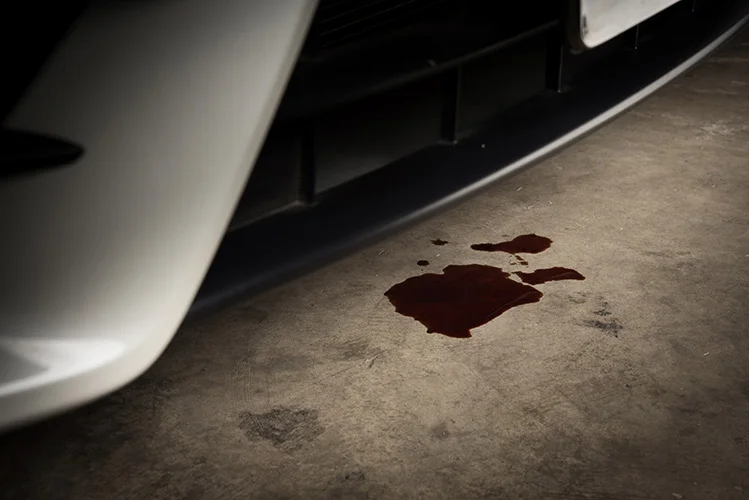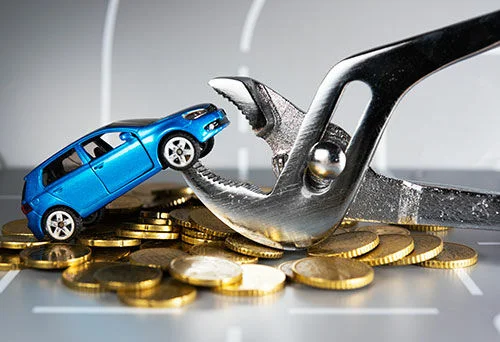Volkswagen Passat first entered production in 1973 as a follower of their Volkswagen 1600. It is still one of the most successful models and the second best-selling next to Volkswagen Golf.
VW Passat has six generations so far, each with its own set of problems. Some models are more reliable than the rest, and few are better avoided. The latest generation also had a recall related to the Takata airbag inflators.
The most number of problems occurred between the years 2001-2006. The model year 2003 is considered to be the worst year. It was followed by 2002 due to the high repair cost and severity of the issues.
This article takes you through the common problems in a VW Passat and the model years with severe issues.
Is a Volkswagen Passat a Reliable Car?
According to RepairPal, Volkswagen Passat reliability is pretty moderate at 3.5/5, taking 12th place out of 32 car brands. Despite that, it is a good midsize vehicle delivering a comfortable ride, even on bumpy roads. Having said that, it has its downsides too. The infotainment screen is much smaller than its competitors. Its fuel economy and mediocre performance aren’t as great either.
How Many Miles Does a Passat Last?
Much like any other vehicle, your VW Passat will last as long as you take good care of your car. Depending on the maintenance, it can last well into the 100,000-mile mark and even more. An average Passat can reach 100,000 miles in about 7 1/2 years. If your car has been giving you reliable performance, you can drive it for ten years or more.
What Goes Wrong with a Volkswagen Passat?
According to VWProblems, Passat owners have recorded a whopping 926 complaints in all 31 model years. Most of the complaints are related to engine and electrical concerns. Furthermore, the 2003 model year was also plagued with engine failures.
Common Problems of a Volkswagen Passat
VW Passat is one of the most reliable and dependable in the midsize sedan segment since the 1970s. However, that doesn’t mean that it is out of mistakes. VW Passat has been plagued with issues from the electrical system to the engine and also the power train. Few issues occur only after several years of running while others in the very first year. And then others have forced Volkswagen to issue a recall.
However, the most common issues include:
Loose Timing Chain
Do you hear a rattling sound coming from the engine? Are you having problems starting the car? A loose timing chain may be to blame.
According to Volkswagen, timing chain issues should not arise before 120,000 miles. However, customers have reported issues even at 20,000 miles. As per experts, the cause is the timing chain tensioner failure.
Timing chains connect the crankshaft to the camshaft via guides and tensioners. They also keep the valves of the cylinder in sync with the pistons present in the combustion chamber. Issues with the tensioner can cause the timing chain to become loose. And if this happens, you can expect some serious problems ahead and a possible engine failure.
Signs of loose timing chains include:
- Engine rattling while starting or idling
- Trouble starting the car
- Check engine light
- Metal trimmings in oil
Class Action Lawsuit
Tired of the repeated issues, the first timing chain lawsuit was filed back in 2016. It was soon followed by 24 more plaintiffs in 17 states and was consolidated in the New Jersey court. Finally, it was settled in 2018, with VW agreeing to a new vehicle limited warranty. The conditions of the claim are:
- 100% reimbursement if done by an authorized VW dealer. Else, the owners get a refund between $1,100 and $1,500.
- If you already repaired or replaced the timing chain, you can claim reimbursement. However, the service should have been done within ten years or at 100,000 miles.
- If not done by an authorized dealer, VW is not responsible for the problems that arise.
Clock Spring Failure
An airbag warning light may be several things. But together with that, are you having problems with your steering wheel buttons? Does your horn trouble you of late? Your clock spring is failing.
Clock springs generally last for a long time, sometimes even the life of the vehicle. However, Volkswagen has been having clock spring issues for quite some time resulting in recalls back in 2015. The scope of the recall included 2010-2014 Passat and few other models. Some Passat owners reported steering issues as early as 80,500 miles.
The clock spring is positioned between the steering column and the steering wheel. It establishes a connection between the wheel and the car’s computers. A faulty clock spring disables the steering wheel airbag, the horn, and the buttons.
As per Volkswagen’s response to the failure, the issues were attributed to the debris contaminating the clock spring. Apart from that, your technician may also be to blame. It is also possible to damage the clock spring when reinstalling the steering wheel. Signs of a clock spring failure include:
- Reduced steering control
- Loud popping noises
- Airbag warning light
Ignition Coil Failure
The ignition coil failure is a common problem among all Volkswagen cars. The truth is, they have had issues with ignition coil and connectors. And these have landed drivers in hot water with no power steering or brakes or even a stalled engine in some cases.
The ignition coil is a crucial part of the ignition system. It converts the voltage (the battery) to energy and feeds it to the spark plug. Unfortunately, Volkswagen has a coil-on-plug design where the coil is situated straight on top of the plug. This system increases the chances of failure creating engine trouble.
Also, the setup sits above the engine, baking in the heat generated. The prolonged exposure to the heat damages the wires and seals, making them brittle.
Signs of ignition coil failure include:
- Noisy engine cranks
- Engine backfire or hesitations
- Startup issues
Continued issues also increase the risk of engine fires. And if it fails when driving, it cuts power to the power steering, engine, and brake assist all at once. With the rising complaints, Volkswagen offered to replace the ignition coils for free.
Oil Sludge
Is your engine starting to overheat? Your engine may be running on oil sludge. As long as you have kept up with your maintenance, you are not to blame.
Engine troubles are fairly standard in Volkswagen, especially in Passat. However, in the 2003 model year, the engine-related issues were caused by oil sludge. It is a thick mixture of oil and contaminants which increases friction and heat. In most cases, you can see the oil pressure light come on after the oil change.
Between the years 1997-2005, VW Passat used a 1.8-liter turbo engine with a 3.7-quart oil capacity. Unfortunately, the small oil supply was in no way enough for the engine. This allowed for oil sludge to form and, when left undetected, can lead to engine failure. This issue generally popped up at around 80-000 miles.
Class Action Lawsuit
Volkswagen admitted the issue in 2004 and offered an extended warranty for eight years. However, the issue was so frequent that it led to a class-action lawsuit in 2005, settled in 2010. If detected early, you can flush the oil sludge and replace the oil pump to prevent the reoccurrence. Else, you may have to have your engine replaced, which is an expensive affair.
Engine Misfire
Another common problem in Volkswagen Passat is the engine misfire. It is seen particularly among the model years 1998-2000, 2002-2010, and 2013. The reason was faulty ignition coils, spark plugs, or ignition wires. Most owners faced it at 88,873 miles, but it also happened at 11,000 miles in some cases.
Signs of an engine misfire include:
- Engine jerking or shaking
- Engine sputtering
- Sudden loss of engine power
- Check engine light
Replacing the defective components solved the issue. On a positive note, high-quality replacements are available at affordable prices.
Engine Oil Leaks
Engine oil leaks are another common Passat problem. The reason for the leak may be a worn-out camshaft chain tensioner gasket or valve cover gasket. The problem was common in 13 model years from 1998 through to 2010. Most car owners have faced the leak at an average of 102,809 miles in the odometer. However, few faced this as early as 11,555 miles.
The affected engines include:
- 1.8-liter four-cylinder turbo
- 1.9-liter four-cylinder diesel turbo
- 2.0-liter four-cylinder turbo
- 2.0-liter four-cylinder
- 2.8-liter V6
- 3.6-liter V6
You may encounter one or both if you have an engine oil leak:
- The smell of burning oil
- Oil puddles on the floor
On a positive note, the leak can be fixed by replacing the valve cover gasket with a new one.
Digital Display Failure
Few owners experienced their digital display going dark on the instrument cluster. While some were facing an intermittent failure, others had it stop working without warning. The issue was frequent in 14 model years, including 1995 and 1998 to 2010.
The reason for the failure was attributed to high temperature and humidity. In most cases, the issue was apparent at 134,623 miles, while in others, it was only at 14,000 miles. Therefore, the only solution is to replace the entire instrument cluster.
ABS Control Module Failure
Another expensive issue that Passat owners faced is the ABS control module failure. This problem affected 15 model years, i.e., 1993, 1998 to 2010, and 2012. While the ABS light lit up at an average of 118,896 miles, there have been cases where it happened only at 11,000 miles.
ABS or anti-lock braking system is designed to bring your car to a stop without locking the wheels. As long as the wheels spin, you can retain control. Modern ABS uses a complicated system of electronics and code to make your driving safer.
On the downside, they can fail. And when they fail, all the indicators go on, and the ABS dies on you. Some owners also reported failing brakes, transmission problems, and a loss of power while accelerating.
Signs of the ABS control module failure include:
- Flashing ABS light
- Blinking brake light, power steering, oil level, traction control, or engine indicators
Generally, fashing ABS light indicated an ABS control module replacement. However, it is not always the same.
Interior Accessories Malfunction
A majority of the Passat problems in the model year 2013 were issues with the navigation unit. They include:
- Stereo/ navigation shut down
- Backup camera taking too long to respond
- Driver’s door not locking
The only fix for this issue is to replace the faulty parts. For example, owners with door lock problems have to replace their door latch assembly.
Mass Airflow Sensors Failure
Mass airflow sensors(MAF) are an integral part of modern engines. You can see it inside the intake air duct, between the engine and the air filter. MAF helps the engine to achieve a perfect blend of air, fuel, and combustion to run in an efficient manner.
The sensor monitors the air entering the engine, the amount, and the density. It then sends the measurements to the engine control unit. The ECU then uses the measurements to calculate how much fuel the car needs and when.
As with every electronic device, the MAF tends to wear down in all cars. However, with Volkswagen Passat a little more early than acceptable. A dirty air filter will cause a buildup of debris and contaminants on the MAF leading to failure. Signs of a failing mass airflow sensor include:
- The engine is hard to start
- Engine stalling or misfiring
- Reduced acceleration with engine hesitating or jerking
- Poor fuel economy
- Bad idle performance
- Warning lights
While it is easy to clean a mass airflow sensor, sometimes your dealer might prefer to replace it.
Is It Expensive to Fix a Volkswagen Passat?
Overall, Passat is generally cheaper to maintain. The yearly maintenance is about $639 compared to the average maintenance cost of $651. The price depends on various factors, including your driving record, maintenance, and miles.
Conclusion
There are quite a few problems associated with Volkswagen Passat. Some come into light after years of operation, while others quite early. In some cases, the manufacturers have issued a recall or reimbursements.
However, it goes without saying that it doesn’t affect reliability if you repair a problem in time. And as for recalls, Volkswagen gives you ample time to file your claims.
Even though Passat is plagued with problems, it is still a great car. It has a smooth and comfortable ride, spacious trunk, and roomy seats. As long as you avoid the problem years (like 2002 and 2003), you should be good to go. Moreover, you can avoid high repair costs and keep your car running for a long time.
For over 45 years, Little Germany is a certified Service Center that specializes in full service and repair services for German-made cars such as the VW Passat. Contact Little Germany for all your auto repair needs. If you need service after our normal business hours, please fill out our After-Hours form.






